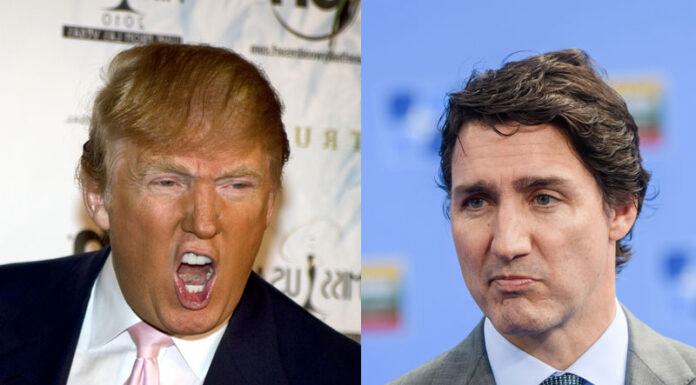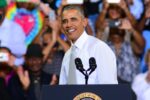On Wednesday, March 5, 2025, President Donald Trump and Canadian Prime Minister Justin Trudeau verbally tussled over new tariffs levied on Canadian imports by the United States. Trudeau had openly criticized Trump’s decision to impose a 25% tariff on Canadian goods just a day earlier.
In a twist of events on Thursday, March 6, Trump approved exemptions for multiple goods imported from Canada and Mexico to the U.S. after pushing both nations to the edge with the proposed tariffs.
The exemptions apply to goods that meet the North American Free Trade Agreement’s standards established during Trump’s initial term. These exemptions will remain effective until April 2, after which Trump plans to impose retaliatory tariffs on products from different countries.
An administration official revealed that approximately half of the goods imported into the U.S. from Mexico and around 38% of goods from Canada will be exempted. This includes potash, a crucial ingredient in fertilizers.
However, certain Canadian energy products will still incur a 10% tariff. Other goods, like computers from Mexico, will face a hefty 25% tariff, according to the official.
Following his discussion with Trudeau, Trump turned to Truth Social, stating that their conversation concluded on a somewhat amicable note yet accusing Trudeau of political posturing. “Justin Trudeau, of Canada, called me to ask what could be done about Tariffs. I told him that many people have died from Fentanyl that came through the Borders of Canada and Mexico, and nothing has convinced me that it has stopped,” Trump shared.
Trump claimed that Trudeau assured him of improvements in the fentanyl situation, which Trump dismissed as “not good enough.” He further insinuated that Trudeau was exploiting the tariff dispute for political gain, writing, “He was unable to tell me when the Canadian Election is taking place, which made me curious, like, what’s going on here? I then realized he is trying to use this issue to stay in power. Good luck Justin!”
Trump’s comments followed Trudeau’s charged press conference on Tuesday, March 4, where he directly addressed Trump. “Even though you are a very smart guy, this is a very dumb thing to do,” Trudeau said, referencing a Wall Street Journal assessment of Trump’s tariff decisions.
Per statements from the Canadian government, less than 1% of fentanyl intercepted at the U.S. border originates from Canada. Canada has implemented a $1.3 billion border plan and taken other steps to combat the issue. Nevertheless, Trump insists that Canada’s fentanyl prevention measures are still inadequate.
In response to the U.S. tariffs, Trudeau cautioned Trump that Canada would impose 25% tariffs on $155 billion worth of American goods. If the dispute remained unresolved, the implementation would start with $30 billion immediately and the remaining $125 billion in 21 days.
During the Tuesday press conference, Trudeau criticized the U.S. for instigating a trade war against Canada, a trusted ally, while expressing readiness to cooperate with Russia and appease Vladimir Putin. Trudeau questioned the logic of such contradictory actions, describing Putin as a dishonest and brutal dictator.
The trade dispute has already unsettled markets and undermined consumer confidence on both sides of the border. According to the U.S. Census Bureau, in 2024, the U.S. imported goods worth $412 billion from Canada, making Canada America’s third-largest trading partner.
On Wednesday, some businesses received temporary relief from Trump. Commerce Secretary Howard Lutnick announced a one-month exemption from the 25% tariffs for automakers complying with the existing free trade agreement. This exemption particularly benefits Detroit, Michigan-based automakers like Ford, General Motors, and Stellantis.
Leaders of Canadian provinces have threatened further retaliatory measures, including halting electricity exports to the U.S. and prohibiting U.S. companies from bidding on provincial contracts. The situation has stoked fears of a broader trade war involving the United States, Canada, and Mexico, with experts cautioning that “everybody is a loser” in such a scenario.
Throughout the dispute, Trudeau has consistently argued that the tariffs violate the United States-Mexico-Canada Agreement (USMCA), a trade agreement that Trump negotiated during his first term. “We’re insulted, we’re angry, but we’re Canadian, which means we’re gonna stand up for each other, we’re gonna fight…and we’re gonna win,” Trudeau stated during his press conference.
Trump has repeatedly suggested that Canada could avoid tariffs by becoming the “51st state” of the United States.
The tariffs could result in higher consumer prices in both countries and potential job losses, especially in the automotive industry. Economists have warned that if the dispute persists, it could dampen economic growth in both nations.
The Brookings Institution has cautioned that imposing 25% tariffs on most imports from Canada and Mexico could jeopardize the future of the USMCA. Experts recommend that the three countries focus on deepening economic integration and competitiveness in North America while addressing non-trade issues like migration and drug interdiction.








